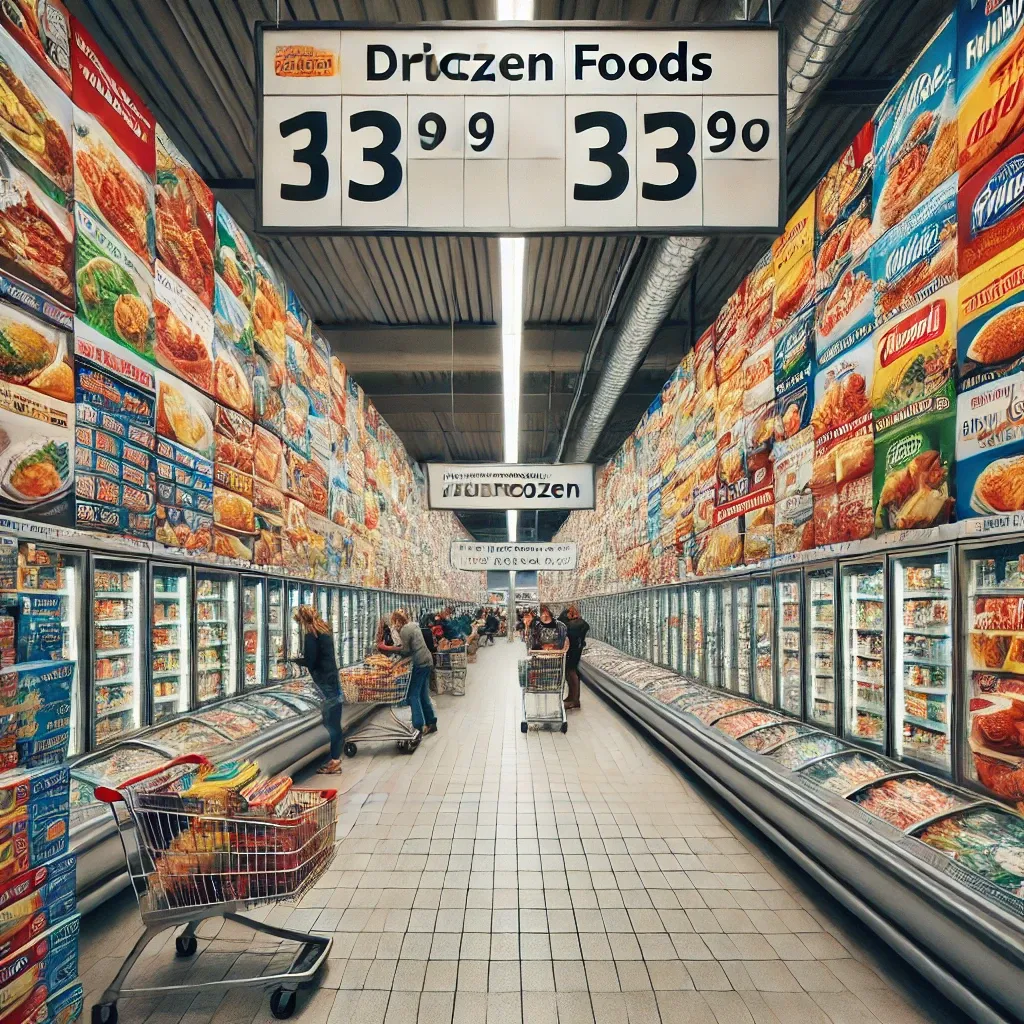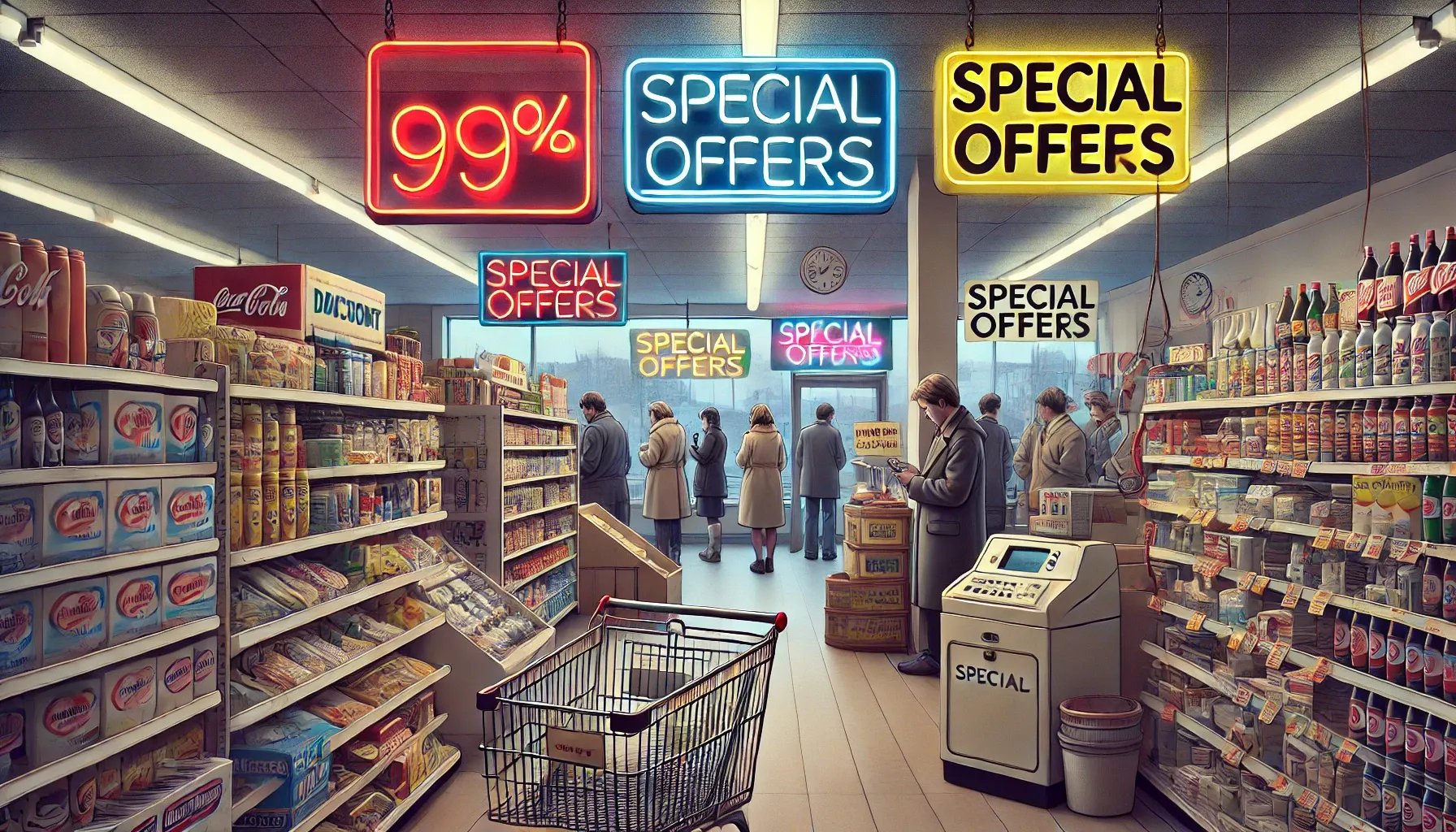Can the Russian discounter Mere compete with Aldi and Lidl in Germany?

- What are the impressions of shopping at the new discount store Mere in Germany?
- What are the chances of the company Mere successfully overcoming competition in Germany?
Author of the article
The author of this material is Olga Müller, a specialist with degrees in law and economics. She is a member of the Royal Institution of Chartered Surveyors (RICS), representing professionals in the real estate sector. Olga also holds the position of associate professor at the European Academy of Real Estate Appraisers (ESA) and has independent appraiser certifications issued by PersCert TÜV in accordance with EN ISO/IES 17024. She is the managing partner of IIG Real Estate GmbH and MSI R.E.S. GmbH.
Impressions from shopping
My recent visit to the store gave me a lot of bright emotions. As a customer, I was amazed to find that the prices here were twice as low as the average values set by other retailers in Germany. I was especially pleased with the frozen berries: I saw that a kilogram of blueberries from Belarus cost only 6 euros, while 2.5 kilograms of blackberries were 8 euros. In the context of the German market, such offers look extremely advantageous. Such prices are rare, and perhaps it is for the berries that I would visit this store again.
Comparison of prices in various discount stores
I conducted a price analysis of products in various German discount stores, and here are some examples:
- Orange juice (1 liter):0.61 euros at Mere, 0.59 euros at Lidl, 0.79 euros at Aldi.
- Milk (3.5% fat, 1 liter):0.62 euros at Mere, 0.70 euros at Lidl, 0.70 euros at Aldi.
- Coffee (500 g):1.97 euros at Mere, 2.99 euros at Lidl, 2.99 euros at Aldi.
- Vienna sausages (530 g):2.12 euros at Mere, 2.59 euros at Lidl, 1.99 euros at Aldi.
- Trash bags (60 liters, set of 20 pcs.):0.23 euros at Mere, 2.59 euros at Lidl, 1.80 euros at Aldi.
- Salami (400 g):€0.69 at Mere, €1.49 at Lidl for 125g, €1.59 at Aldi for 100g.
- Olives (200 g):0.73 euros at Mere, 1.39 euros at Lidl, 0.69 euros at Aldi for 170 g.
- Cheese (500 g):2.40 euros at Mere, 1.85 euros at Lidl and Aldi for 250 g.
- Red wine (0.75 L):1.04 euros at Mere, 1.99 euros at Lidl and Aldi.
- Mint tea:0.26 euros at Mere, 0.59 euros at Lidl and Aldi.
All listed prices are presented in euros.
Assortment and quality
Despite the attractive prices, the selection leaves much to be desired: the store practically lacks fresh baked goods, fruits, and vegetables. Mostly, frozen products, canned goods, and drinks with preservatives are offered here. In one of the photos taken in the store, you can see me next to mops that were sold for less than 2 euros and became the most popular item. Such a situation hasn't been seen in Germany for a long time. I also expected to find Russian products, but the shelves at Mere mainly feature goods from Poland, the Czech Republic, and Romania, where the chain also has its branches.
Interiors and atmosphere
The interiors of the supermarket can be described as quite minimalist. Products are placed directly on the floor in cardboard packaging, which creates the impression of a warehouse rather than a store. However, it is worth noting that customers' attitudes towards shopping have significantly transformed in recent years: trips to the store are now perceived more as entertainment rather than a routine necessity. For many people, the goal of going to the store is not just to make a purchase, but also to enjoy the process. However, in the case of this discount store, the joy lies in the fact that many products cost significantly less than in other supermarkets.
The first day of the opening
I visited Mere the day after it opened and was surprised by the huge influx of customers, which is rare for Germany. Apparently, the significant interest was sparked by media discussions; many came out of curiosity to see what the "Russian store" has to offer. Some visitors were curious to find out if the company would really be a tough competitor for Aldi and Lidl. I also noticed representatives from the professional community who seemed to be assessing the truthfulness of the claims made by the Russian entrepreneurs. Overall, among specialists, this situation evokes more irony than seriousness.
Overview of the current situation
In my reflections on the current situation, one aspect particularly surprised me as an expert: the manager of the company Mere (although it is currently just a single store and not a full-fledged chain) declares its intentions to compete with global players like Aldi and Lidl.
9 October 2024
9 October 2024
9 October 2024
29 September 2025
9 October 2024
However, experience shows that the "lowest price" strategy does not always prove successful. A striking example of this is the story of the German chain of hardware stores Praktiker, which, positioning itself as a "hard discounter," focused on low product prices without considering service, presentation, or display. As a result, this policy led many customers to prefer shopping at other stores, which ultimately resulted in Praktiker's bankruptcy.
Problems of an outdated strategy
This fact demonstrates that an approach based on significantly lowered prices is not always justified, which is also supported by sales data from Aldi — a pioneer in the discount segment. A few years ago, this company recorded a decline in its turnover of 2-3%, which is a significant indicator for such a large chain.
The reason for this decline was that Aldi failed to adapt to changing consumer preferences, ignoring factors such as:
- Product quality
- Lighting
- Service level
- The desire of customers to have access to fresh products
Expectations of the company Mere
What are the prospects for the company Mere based on? They have identified a segment of the population in Germany with low incomes, including the unemployed and those receiving social benefits. For these individuals, it is not difficult to spend time traveling long distances to visit the store, especially if transportation costs are covered by local authorities.
Such stores can be a real opportunity for them. The problem is that the overall segment of such consumers in the country is less than 10%. The remaining customers seek convenience and quality service to make the shopping experience enjoyable for them.
Public perception of Mere
Local news has started to feature jokes about Mere being a return to the past. It has drawn similar reactions to supermarkets right after the reunification of East and West Germany. As a result, many people are skeptical about this new player in the market: Germany has made significant progress, and now there's a "Russian bear" claiming that outdated methods still work.
Many people ironically note that this was relevant 40-50 years ago, when Aldi was just starting out. Today's consumer needs have changed dramatically, and these statements are not unfounded, as large companies are actively conducting in-depth research on consumer preferences and expectations.
Plans for opening new stores
Another discussed part of Mere's strategy is their intention to open about 100 new supermarkets in eastern Germany. This move is based on logistics: first, it is necessary to cover the east of the country, and only then move westward.
However, the plan is to open stores exclusively in cities with a population of at least 80,000 people. The problem is that there aren't many such towns in eastern Germany.
To achieve the goal of opening 100 new stores, it will be necessary to open 10 retail locations in each of the major cities. However, there are challenges: there are simply no available spaces suitable for supermarkets, which makes accomplishing the task quite difficult.

Conclusion
In conclusion to my observation, I want to note that the new realities in the grocery retail market in Germany are shaped by a multitude of factors, and a better understanding of these factors can play a key role for new players. As a consumer, I was pleasantly surprised by the availability of products at the mere chain, especially when considering the prices of frozen foods and beverages. However, as a professional in the real estate and retail sector, I cannot help but point out that such a pricing policy, based solely on lowering prices, may not be sustainable in the long term.
The dangers of traditional strategy
The concept of low prices without considering service quality, customer convenience, and modern store design, as observed in the case of Praktiker, is not new and has already had its negative consequences. The loss of customers, who are difficult to compete with, and unrealistic expectations regarding scaling in the current market conditions are common to many short-sighted strategies. It is important to remember that consumers are becoming increasingly demanding: we want not only low prices but also convenience, quality, and good shopping conditions.
Strategic mistakes
From the perspective of this strategy, if mere is indeed planning to expand its networks, it is worth considering providing:
- a wider range of products,
- improve the quality of service,
- create comfortable conditions for your clients.
Additionally, it is important to consider the specifics of the market in different regions of Germany, especially when it comes to East Germany, where, as I have noticed, there may be challenges in finding suitable premises for opening new stores.
Conclusions
Thus, observing the development of new offerings in this rather conservative and saturated market, I can say that simply lowering prices does not always guarantee success. We need to adapt to changes, and this will undoubtedly be an important task for any new players in the German retail market. I hope that mere will take all of the above aspects into account, not only to attract customers' attention but also to retain them in the long term.
Comment
Popular Posts
9 October 2024
9145
9 October 2024
9957
29 September 2025
415
9 October 2024
1493
Popular Offers

Subscribe to the newsletter from Hatamatata.com!
Subscribe to the newsletter from Hatamatata.com!
I agree to the processing of personal data and confidentiality rules of Hatamatata





